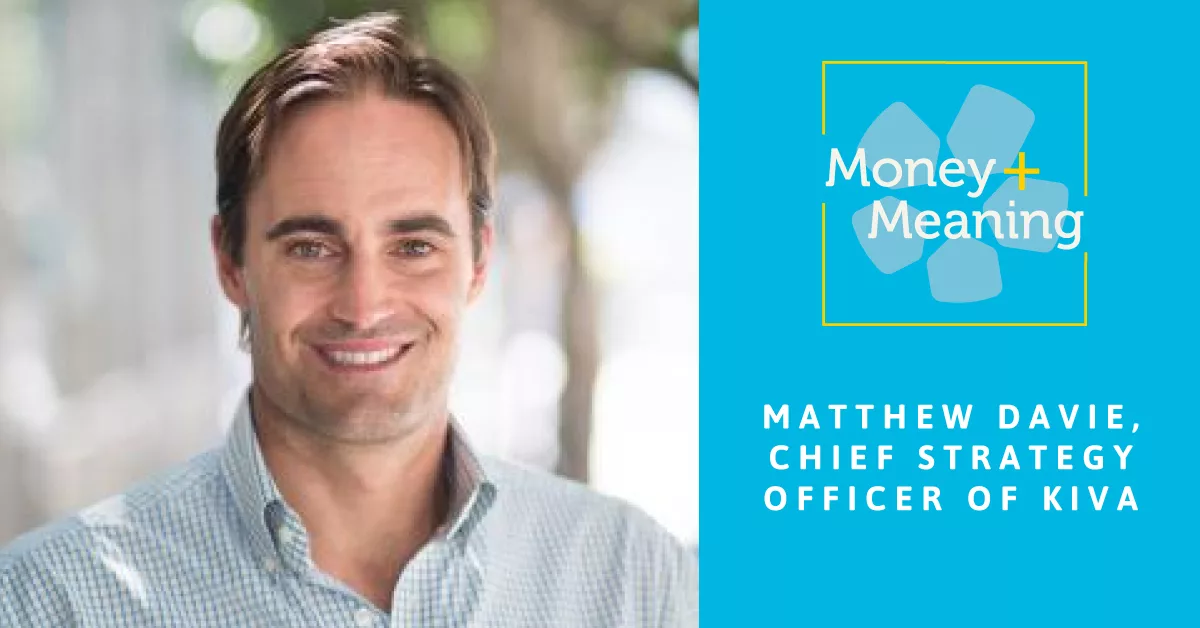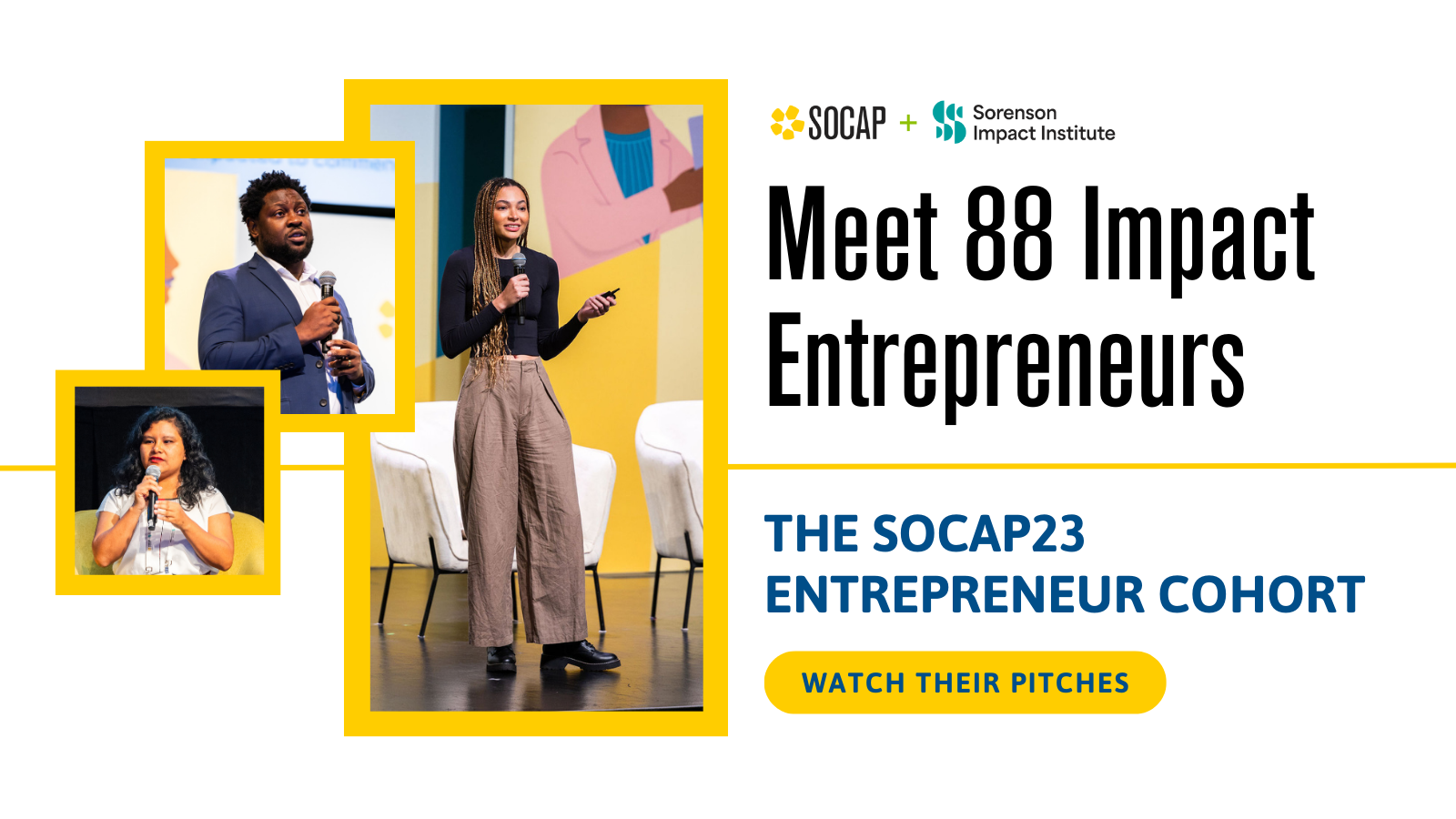A new episode of Money + Meaning, SOCAP’s podcast, is now available!
Listen
Don’t miss out! Subscribe to Money + Meaning on Apple Podcasts, Stitcher, TuneIn, Spotify, or anywhere else you find podcasts.
Matthew Davie on How Kiva is Applying Systems Change Thinking to Financial Inclusion
“The problem with financial exclusion and the amount of capital needed is only getting worse right now–not getting better. And that is because of the system. The financial sector that moves money around the world…that system is not inclusive by design.”
–Matthew Davie
How can technology help extend access to financial services to the 1.7 billion unbanked people in the world? Kiva has been one of the leading organizations working on answers to this question for almost 15 years now.
You may know Kiva primarily as microfinance pioneers who built an innovative crowdfunding-based platform. Their online marketplace, which connects lenders who want to do good with borrowers in low-income communities across the globe, has deployed over $1.5 billion in microloans that have helped over three million borrowers lift their families and communities out of poverty. Though Kiva continues to create positive impact in the lives of the people they serve, the organization realized that the systemic challenges that perpetuate financial exclusion are growing worse. Recently Kiva has taken some bold new moves beyond their origins in microfinance, and towards new technology based solutions they hope will lead to a truly inclusive system.
In the latest episode of Money and Meaning, Lindsay Smalling interviews Kiva’s Chief Strategy Officer Matthew Davie about some of their new solutions to the challenges of financial exclusion. Davie tells Smalling that their new approaches are rooted in their recognition that our current financial system “was built around infrastructure that makes it too hard, too risky, or too expensive to serve someone who is not currently served, and specifically to serve poor people.”
Building New On-Ramps from the Informal to Formal Credit Sectors and Other Solutions
It is not a lack of creditworthiness that prevents the unbanked from qualifying for credit from banks and other formal financial institutions. Davie says Kiva’s own 97% repayment rate disproves the “myth that unbanked borrowers aren’t creditworthy.” Instead, it is the lack of a reliable system for verifying identity and tracking credit history data that denies the unbanked access to capital and services from formal lenders. Kiva came to this realization in part through conversations they had with some of their own borrowers. He tells the story of a woman in Kenya who had a ten-year record of perfect repayment history on her Kiva microloans who could not get a bank loan to build a house because she lacked formal credit history data. Davie said, “Even if Kiva came in and said, we’ve worked with this woman for 10 years, she’s a perfect credit risk, please underwrite her loan, the bank won’t do it. It’s because of the lack of data–specifically a lack of identity and credit history…this is the shortcoming of having two systems-an informal sector and a formal sector.”
The current lack of trustworthy bridges between the informal and formal credit sectors denies people in the developing world access to cash and credit that could bring opportunities for entrepreneurial growth, housing, education, nutrition, health care, and other basic needs. Blockchain and other emerging technologies are presenting new solutions to these challenges. Kiva Protocol is a new blockchain based solution that helps build a bridge between the informal and formal credit sectors. It offers the unbanked a verifiable digital identity that empowers them to start controlling their own credit information. Both formal and informal financial institutions can help contribute to their credit history.
Davie talks about Kiva Protocol and other new ways they are working to change the underlying system in order to expand access to capital in emerging markets. He also shares his thoughts on how this new system can avoid mistakes inherent in the legacy systems and deliver digital solutions that are cheap, secure, and fast for everyone.
Featured Voices
 Matthew Davie
Matthew Davie
Chief Strategy Officer, Kiva
 Lindsay Smalling
Lindsay Smalling
Host
About Money + Meaning
Money + Meaning is the official podcast of SOCAP. This series aims to expand the conversation around impact investing and strategies to finance and support social change while stimulating innovative and valuable new partnerships across sectors.
Learn More
Neville Crawley from Kiva spoke about the Kiva Protocol in a SOCAP19 conversation on the topic of Identifying Opportunities for Scale & Making it Happen.







